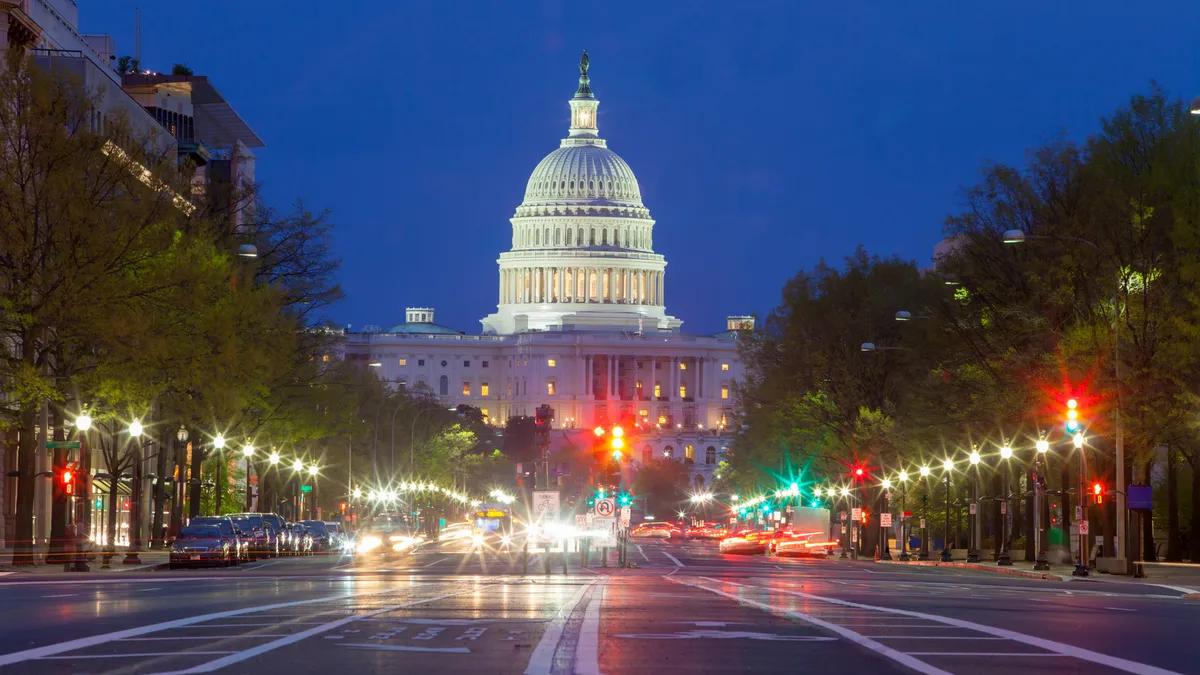Dive Brief:
-
The House Appropriations Committee has signed off on a 6% increase in FDA's discretionary funding for 2020, bringing the agency's total appropriation to more than $3.25 billion. With user fees included, the agency's total budget for 2020 would stand at more than $5.8 billion if the legislation becomes law.
-
If passed by the House and the Senate, the bill will give FDA $185 million more than it received in 2019 in appropriations, although funding for a key medical device initiative is set to remain constant.
-
The House may further debate and tweak the proposal later this month with an eye toward completing the process by the start of the new fiscal year in October. The Senate is expected to start working on its appropriations package later in the summer.
Dive Insight:
With the appropriations bill passed by the House committee by 29 to 21 votes, FDA is set to receive 6% more than in fiscal 2019 if the bill becomes law. The Alliance for a Stronger FDA praised the "substantial investment" supported by the appropriations committee.
According to the Alliance, the bill would boost Center for Devices and Radiological Health funding by $33 million over the fiscal year 2019 level of funding.
The House committee wants to give FDA an extra $1 million "to improve infrastructure for conducting pediatric device trials" and support the planning of a related pediatric device collaboration. That proposal reflects a belief that FDA "does not have the necessary resources to properly leverage the benefits of the [Pediatric Device Consortia] program."
The committee wants one FDA priority, the Transform Medical Device Safety, Cybersecurity, Review, and Innovation initiative, to make do with the same level of funding as it received in fiscal 2019.
Through the initiative, FDA hopes to build an IT system that enables medical device safety issues to be monitored across bench testing, clinical development and in real-world use post-approval. FDA called the system "essential" in its 2020 budget request, arguing that it will support implementation of new approaches to digital health technologies, breakthrough devices and cybersecurity.
"Overall, it will make device reviews, postmarket surveillance, and cybersecurity efforts significantly more efficient and informative, which could shorten review cycles, quickly identify and address safety signals and cyber vulnerabilities, and spur the development of innovative, safer, more effective devices," FDA wrote.
The Alliance for a Stronger FDA expects the bill to be taken up on the House floor later this month, and thinks the Senate may also start working on it in the next few weeks. The nonprofit sees signs that Congressional support for FDA is strong but warns of a "devastating" scenario where the agency's total budget is cut by around $500 million under sequestration if Congress fails to raise or waive spending caps.











